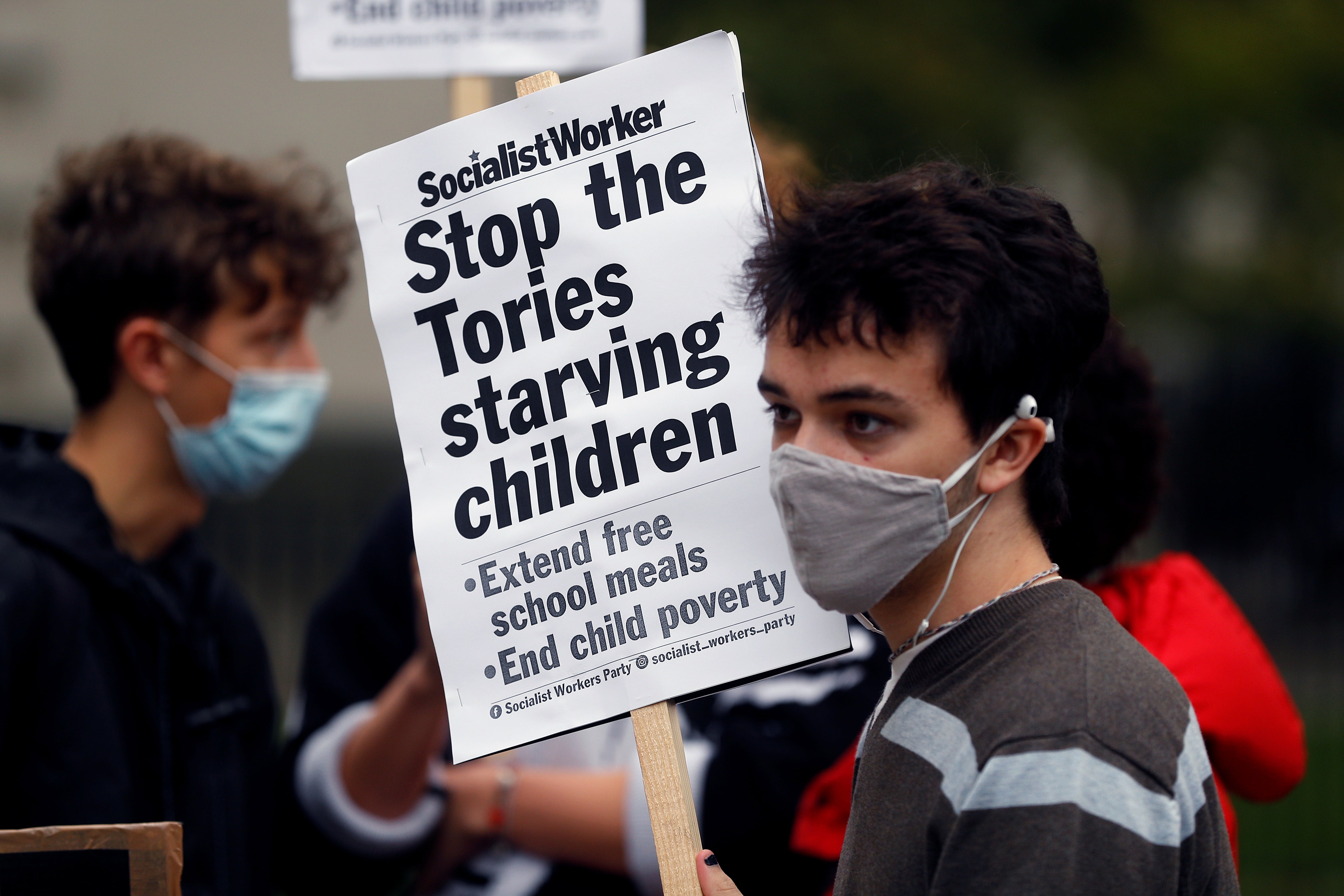Can the government really not afford to pay for free school meals?
Two questions need to be asked. One is whether this is the most cost-effective option. The other is whether this will lead to another free TV licence or triple lock pensions situation, writes Hamish McRae


Is Marcus Rashford right? Can the government afford to pay for free school meals during the holidays and if so, why doesn’t it do it?
The answer to the first question is: yes of course he is. It is affordable, and as we have seen in political terms, it is damaging to the government not to follow his lead. The numbers are not large in the totality of public spending. Some £120m has been cited as the cost of extending the free schools meal programme on these lines and that number feels about right. Public spending this year is going to be more than £1 trillion – the Office for Budget Responsibility’s July estimates were that it would total £1,062bn, though the latest revenue and borrowing numbers look a little less daunting and revenues have held up better than forecast then.
So if it is a good idea, and not that expensive in the broader scheme of things, why not just do it? I suspect that is where we may end up, but the problem is that in the longer term, resources are finite and if the government does this then there is something else that it cannot do instead. Economists call this “opportunity cost”, and it is one of the most important concepts there is, not just for public finances but for all of us in our daily lives.
Should free school meals be extended more widely? It is certainly a seductive idea, but the Institute for Fiscal Studies looked at this three years ago and concluded that there was a better option: breakfast clubs.
It found that “a one-year breakfast programme in disadvantaged schools delivered similar academic benefits to universal free school meals …. The breakfast clubs also significantly improved behaviour and concentration, and reduced absences – and did so at around one-tenth of the cost per pupil of universal free school meals.”
This is not to take sides on the Rashford plan. It is simply to make the point that the right way to form policy is to look at the evidence rather than do the politically popular idea. In an emergency, such as we are in now, there is a need to explore all the options. But there is always the danger that the short term becomes long term, and that I suspect is what is worrying the Treasury.
There are a host of examples of a popular political initiative that becomes, if not unaffordable, certainly difficult to afford in the future. Two current examples are free TV licences and the so-called triple lock state pensions.
TV licences became free for over-75s in November 2000, a clever political idea of Gordon Brown, the then chancellor. But since then the number of elderly people has shot up, and while the government managed to offload the responsibility onto the BBC, both it and the BBC carry the opprobrium of trimming back the benefit. In real terms – ie, adjusted for inflation – the licence fee is roughly the same as it was when colour TVs first came in the late 1960s. Household incomes have risen sharply since then. But this has not defused the row.
The triple lock was another clever idea to buy support among the elderly voters. Public pensions would go up by at least the rise in average earnings, consumer prices, and 2.5 per cent – whichever was the highest. Politically it was a brilliant idea, launched in 2010 by George Osborne, chancellor under the coalition government. The trouble is that with relatively low inflation and low increases in earnings since then, the 2.5 per cent part of the lock has gradually meant that pensioners not only caught up with average earnings but in some cases have run ahead of them. The Treasury has been desperate to unpick the lock for some time. So far it has not succeeded. Indeed Rishi Sunak has recently confirmed that it will be retained, at least for the time being.
Making sure our children are well fed is, as Americans would put it, one of the motherhood and apple pie issues that must be at the top of any decent society’s objectives. The free school meals programme contributes to that. But children need to eat in the holidays too, so an extension makes obvious common sense. It is the genius of Rashford to make us see this and hats off to him. But in supporting it, two questions do need to be asked. One is whether this is the most cost-effective way of achieving the objective. The other is whether this is another free TV licence or triple lock situation, a great political idea but one that gradually leads to tough choices in the years to come.





Join our commenting forum
Join thought-provoking conversations, follow other Independent readers and see their replies
Comments